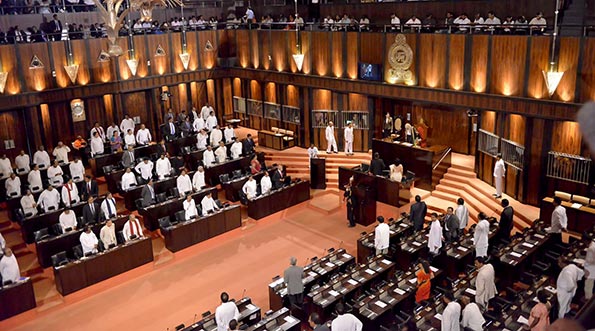Sri Lanka parliament backs special courts for bribery, corruption cases

Sri Lankan parliament on Wednesday approved a new law to establish courts to handle cases related to bribery and corruption to speed up cases that have dragged on for years.
Currently, Sri Lanka’s courts, which act as investigative magistrates weighing evidence before a trial can be started, can take up to five years before a defendant even reaches the dock.
“Parliament has responsibility over public money and all members have a right to take legal action against the people who wasted it,” Justice Minister Thalatha Atukorale told parliament.
She said there was a perception that some suspects had not been “brought to book”.
Her comments appear to be aimed at former officials who served under former president Mahinda Rajapaksa and his family members, who President Maithripala Sirisena’s government accuses of misappropriation of public funds.
Several members of the Rajapaksa family are facing police probes for alleged financial crimes, but none have yet faced trial. They have all denied wrongdoing.
The new law will enable the chief justice to establish special high courts and appoint three judges to them as needed.
In the 225-member parliament 119 lawmakers backed the special court law and 52 voted against. Many legislators were not present at the vote.
(Reuters)
Latest Headlines in Sri Lanka
- Johnston Fernando, two sons and others further remanded until February 13, 2026 January 30, 2026
- Sri Lanka raises daily wage of plantation workers to Rs. 1,750 January 30, 2026
- Sri Lanka expands Internal Affairs Units to 250 more state institutions January 30, 2026
- Three arrested over Rs. 17 Million Lanka Sathosa garlic scam January 30, 2026
- Businessman arrested over Rs. 30 Million money laundering case linked to former minister January 30, 2026



What a great news !!!. Most of the corrupted politicians attempted to defeat this act but could not.
A panel of judges will determine which cases should get the priority.
a panel of judges should should judge on the basis of article 126(5)of our constitution which states a petition filed in the Supreme court should be completed within 2 months of filing the petition as such if are Judges are really interested in completing about 200000 cases in the Supreme court they can do so within 2 months